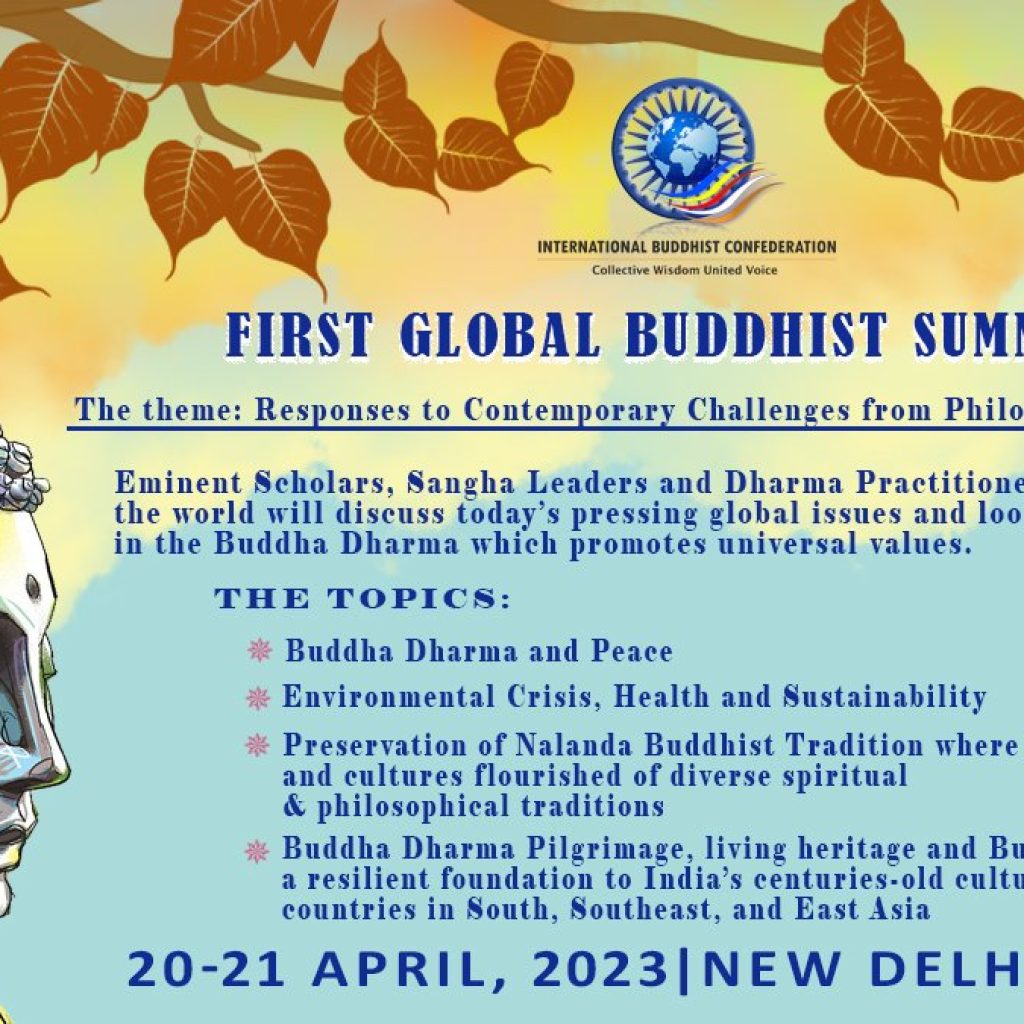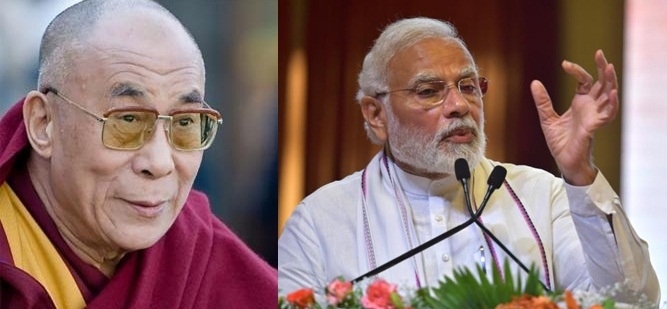For the Tibetans in exile, Prime Minister Modi’s presence at the Buddhist summit has given rise to the pious hope of his meeting with the Dalai Lama…writes Vishal Gulati
Days after a misleading and tailored clip of the Dalai Lama went viral to smear his image, the 87-year-old Tibetan spiritual leader on Wednesday reached Delhi to attend the two-day meeting of the Global Buddhist Summit, beginning Thursday, in the national capital to be inaugurated and addressed by Prime Minister Narendra Modi.
For the Tibetans in exile, Prime Minister Modi’s presence at the Buddhist summit has given rise to the pious hope of his meeting with the Dalai Lama, who has lived in exile in northern India for over six decades.
The expectation stems from the fact that Modi had only spoken with the Dalai Lama to convey greetings on his 86th birthday in July 2021 and wished him a long and healthy life.
The Indian functionalities see the probable meeting — the first publicly with the globetrotting aging Buddhist monk, feted by some of the world’s top leaders, since he took over as Prime Minister in 2014, can be seen in the context to send a stern warning amid relations between India and China worsening in the recent times and in a strategic shift that India is behind the Dalai Lama for any decision he takes on his reincarnation.
Also India will try to signal to the US the intent to raise the profile of the Tibet issue at a time when the US administration passed the Tibetan Policy and Support Act in 2020, making it clear that only the Dalai Lama should have control over his reincarnation, not complying with China’s laws to impose its sanctioned successor.

Last month Central Tibetan Administration (CTA) President Penpa Tsering, who is the head of Tibet’s government-in-exile, testified virtually at the US Congressional-Executive Commission on China’s hearing, highlighting small and large-scale repression that is deliberately intended to annihilate the foundation of Tibetan culture and national identity.
The Indian leaders and officials have generally been cautious about public contact with Tibet’s spiritual leader to avoid upsetting Beijing, who regards the spiritual leader as a dangerous “splittist”, or separatist, and frowns on any engagement with any political leader.
Tibetan leaders in Dharamsala are now hopeful of the Dalai Lama-Modi meeting with the CTA headed by democratically elected Penpa Tsering clarifying in 2021 that His Holiness is expected to meet Modi after the Covid-19 situation stablises.
The Dalai Lama, or Ocean of Wisdom, is the leading spiritual figure bringing Buddhist teachings to the international community.
The elderly monk, known for his simplicity and jovial style, prefers to participate in meetings with religious leaders, and lectures businessmen on ethics for the new millennium and the art of happiness. He chuckles throughout his talk and often slaps visitors on the back.
The Dalai Lama is the recipient of over 150 global awards, including the Nobel Peace Prize, UN Environment Award, US Congressional Gold Medal, John Templeton Award, among others.
In India, he several times met with the BJP leaders, including party veterans — former Prime Minister Atal Bihari Vajpayee and former Deputy Prime Minister L.K. Advani, Presidents Ram Nath Kovind and Pranab Mukherjee, and Congress leader and former Prime Minister Manmohan Singh.

At an event in January 2016 to celebrate the Dalai Lama’s 80th birthday, Singh referred to His Holiness as a gift of God to the world.
According to a post by the CTA, the Global Buddhist Summit will bring together prominent scholars, Sangha leaders, and Dharma practitioners from across the globe to discuss pressing global issues, including peace, environmental sustainability, health, preservation of Nalanda Buddhist tradition, and the significance of Buddha Dharma pilgrimage and Buddha relics as a foundation for India’s cultural ties to countries in South, Southeast, and East.
Union Culture Minister G.K. Reddy said the global summit will also be a medium to enhance the cultural and diplomatic relationships with other countries. He said delegates from almost 30 countries will participate in it and around 171 delegates from foreign countries and 150 delegates Indian Buddhist organisations.
Earlier, the Ministry of Culture along with the IBC, headquartered in New Delhi, held an international meet of experts from the Shanghai Cooperation Organization (SCO) nations on Shared Buddhist Heritage in order to re-establish trans-cultural links, seek out commonalities, between Buddhist art of Central Asia, art styles, archaeological sites and antiquity in various museums’ collections of the SCO countries.
On March 31, 1959, the 14th Dalai Lama entered India from Chutangmu, a small Assam Rifles outpost near Tawang in Arunachal Pradesh.
In his biography, the Dalai Lama mentioned that when he first stepped into India after escaping Lhasa, he experienced “freedom”.
In Mussoorie on April 20, 1959, the spiritual leader met with first Indian Prime Minister Jawaharlal Nehru and the two talked about rehabilitating the Tibetan refugees.
Currently, 130,000 Tibetans in exile live in many countries around the world in both compact and scattered communities. About 80,000 are settled in 54 different locations across India, Nepal and Bhutan.
Around 50,000 are scattered across many countries in the West.
With the exception of Tibetans in Tibet, all Tibetans are administered by the CTA from Dharamsala.

Leave a Reply